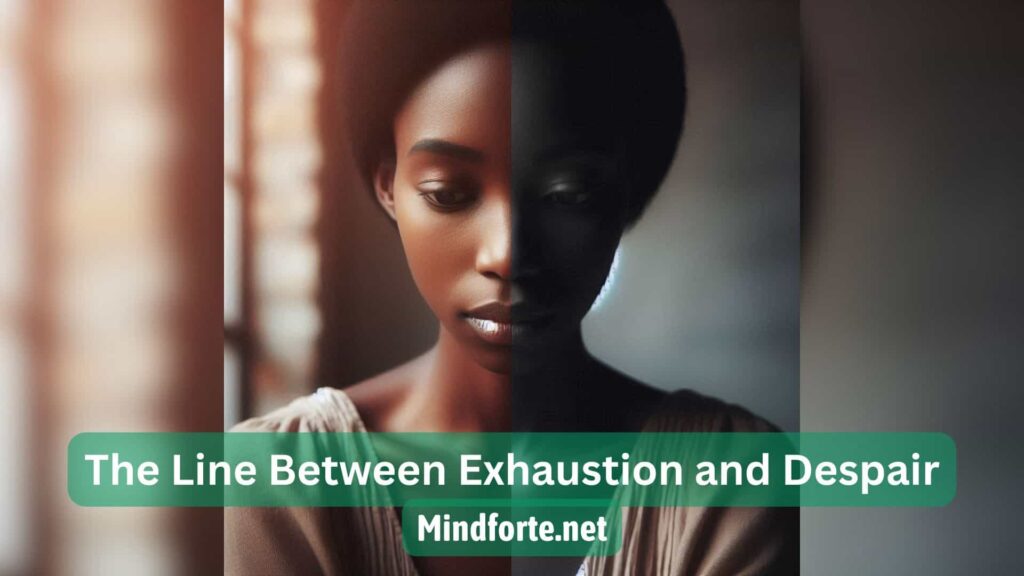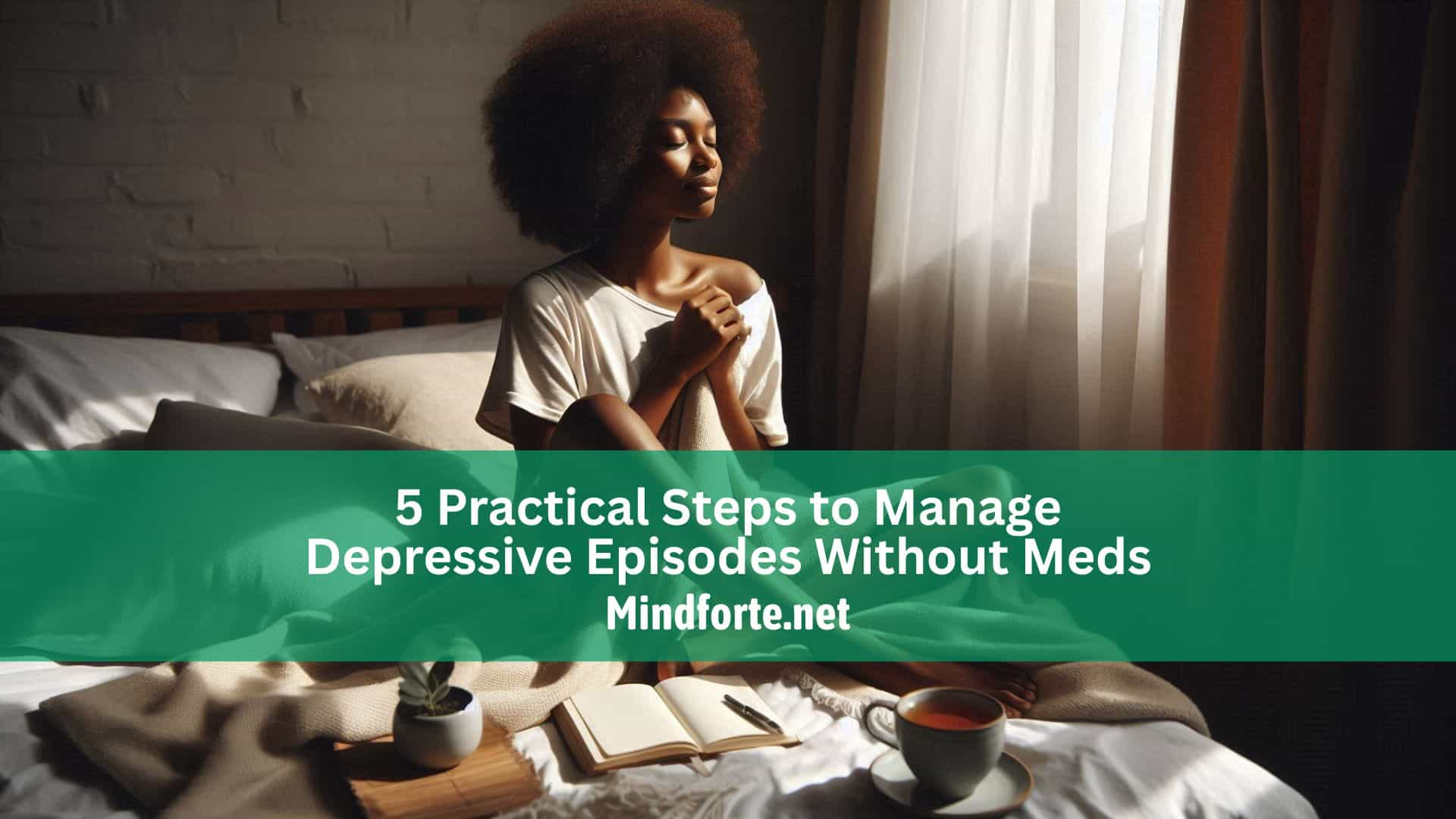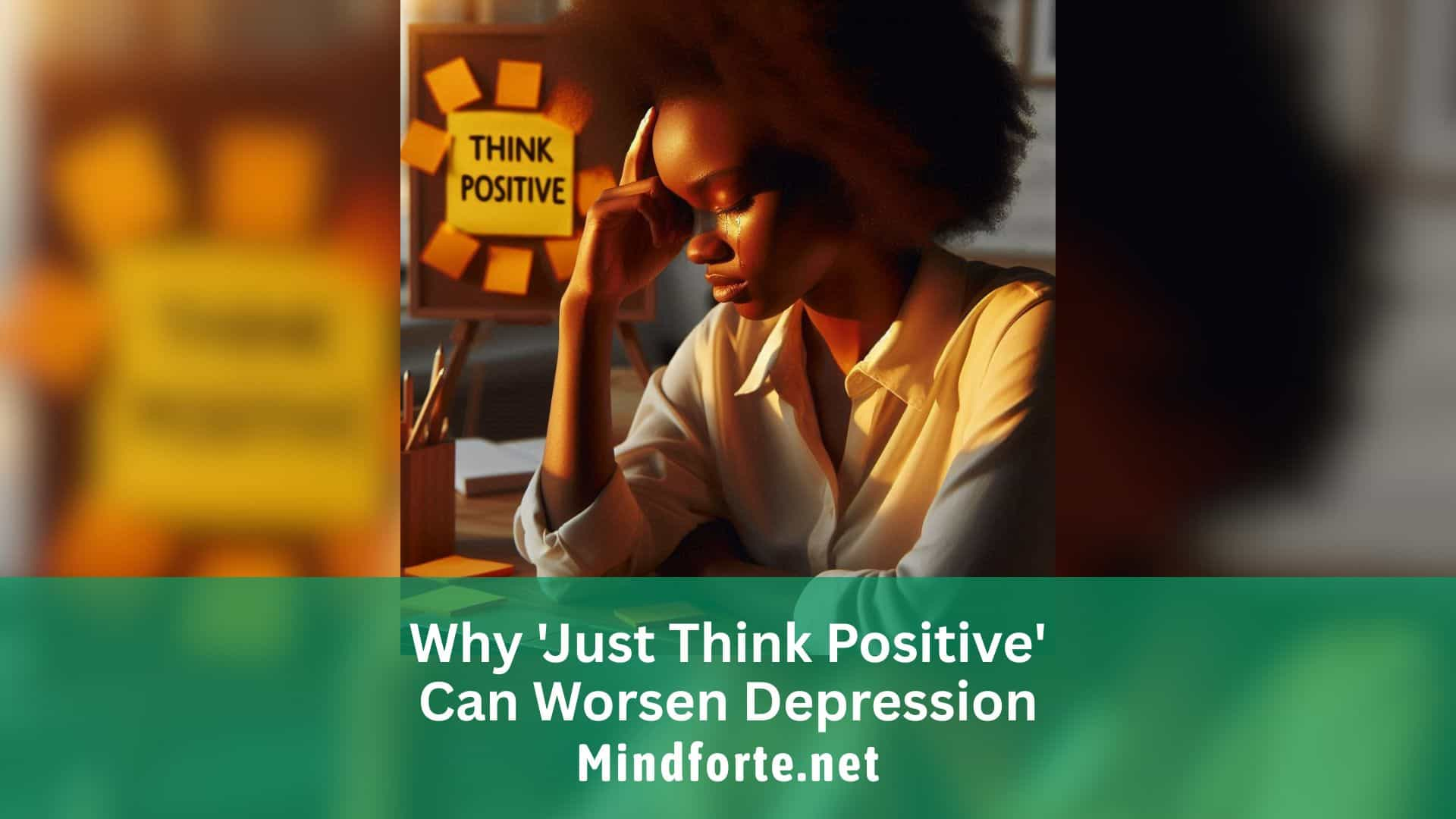Have you ever felt like you’re running on empty, yet the world keeps demanding more?
You push through each day, but the weight doesn’t lift.
It’s a common experience, and it often leads to a pressing question: Am I just burned out, or is this something deeper, like depression?
Understanding the distinction between burnout and depression is crucial.
Both can leave you feeling drained and disconnected, but they stem from different sources and require different approaches to healing.

Understanding Burnout: When Stress Becomes Too Much
Burnout is a state of emotional, physical, and mental exhaustion caused by prolonged and excessive stress. It’s often linked to work, but it can also arise from other areas of life, such as caregiving or academic pressures. (verywellmind.com)
Common signs of burnout include:
- Feeling tired and drained most of the time
- Lowered immunity, frequent illnesses
- Frequent headaches or muscle pain
- Change in appetite or sleep habits
- Sense of failure and self-doubt
- Feeling helpless, trapped, and defeated
- Detachment, feeling alone in the world
- Loss of motivation
- Increasingly cynical and negative outlook
- Decreased satisfaction and sense of accomplishment (ncbi.nlm.nih.gov, healthline.com)
Burnout tends to be situational.
If you remove or reduce the stressor—like taking a break from work or delegating responsibilities—you often start to feel better.
Understanding Depression: When the Darkness Lingers
Depression, on the other hand, is a mental health disorder characterized by persistently low mood, low energy level and a loss of interest in activities.
It’s more than just feeling sad or going through a rough patch; it’s a pervasive condition that affects every aspect of your life.
Common signs of depression include:
- Persistent sad, anxious, or “empty” mood
- Feelings of hopelessness or pessimism
- Irritability
- Feelings of guilt, worthlessness, or helplessness
- Loss of interest or pleasure in hobbies and activities
- Decreased energy or fatigue
- Moving or talking more slowly
- Difficulty concentrating, remembering, or making decisions
- Loss of appetite or overeating
- Sleeping less or sleeping too much
- Suicidal ideation (intrusive thoughts of self-harm) or suicidal intent (making plan to self-harm).
Unlike burnout, depression doesn’t necessarily improve with a change in circumstances.
It’s a medical condition that often requires professional treatment, including therapy, medication, or a combination of both.
Key Differences Between Burnout and Depression
While burnout and depression share some overlapping symptoms, there are key differences:
- Scope: Burnout is typically related to work or specific stressors, while depression affects all areas of life.
- Emotions: Burnout often leads to feelings of frustration and cynicism, whereas depression is marked by feelings of hopelessness and helplessness.
- Physical Symptoms: Both can cause fatigue and sleep disturbances, but depression may also lead to significant changes in appetite and weight.
- Response to Rest: Burnout may improve with rest and stress management, but depression often requires more comprehensive treatment. (medicalnewstoday.com)
When to Seek Help
If you’re experiencing symptoms that interfere with your daily life, it’s essential to seek professional help.
You might be wondering, “Do I need therapy?” Here are some signs that indicate you should consider it:
- Persistent feelings of sadness or emptiness
- Loss of interest in activities you once enjoyed
- Difficulty performing daily tasks
- Thoughts of self-harm or suicide
- Feeling overwhelmed by stress
Therapy can provide you with coping strategies, emotional support, and a safe space to explore your feelings.
The benefits of talking to a therapist include improved mental health, better stress management, and enhanced self-awareness.
Taking the Next Step
Recognizing the difference between burnout and depression is the first step toward healing.
At Mindforte Psychology Clinic, we offer mental health support tailored to your unique needs.
Whether you’re dealing with work-related stress or struggling with deeper emotional issues, our experienced therapists are here to help.
Don’t wait for things to get worse. Seeking psychological help is a sign of strength, not weakness.
If you’re in Nigeria and looking for therapy options (or you are unable to meet physically and need online therapy), we’re here to support you every step of the way.
Book an appointment here: www.mindforte.net/booking
References:
- Medical News Today. (2023). Burnout vs. depression: Symptoms, causes, and treatment. https://www.medicalnewstoday.com/articles/burnout-vs-depression
- Healthline. (2024). Depression or Burnout? How to Identify Symptoms. https://www.healthline.com/health/burnout-or-depression
- GoodRx. (2024). Burnout vs. Depression: What’s the Difference? https://www.goodrx.com/health-topic/mental-health/depression-vs-burnout
- Psych Central. (2022). What’s the Difference Between Burnout and Depression? https://psychcentral.com/depression/burnout-vs-depression
- Verywell Mind. (2006). How to Recognize Burnout Symptoms. https://www.verywellmind.com/stress-and-burnout-symptoms-and-causes-3144516 (medicalnewstoday.com, healthline.com, goodrx.com, psychcentral.com, verywellmind.com)


